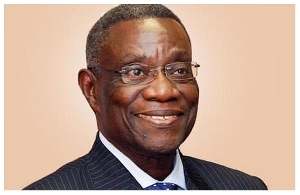By Theodore K. Viwotor, a. k. a Solomon Davids, from Argentina
The performance of the Black Challenge was a delight to watch and even though they did not make it to the semi finals, they left an indelible mark in the history of the tournament. They became the first African country to ever reach the quarter finals of the 60 year old competition.
On Saturday, 23rd October, 2010, they faced Brazil in a match to determine who places 5th or 6th in the world. Brazil had also failed to get to the semi finals. The Brazilians were the better and more experienced side. Tried as the Ghanaians did, they could not overcome the Brazilians who won by 2-0 at Cerrito, making them the 5th best team in the world.
In the semi finals, Argentina beat Russia 4-1 on penalties after a goalless game, whilst Uzbekistan beat Turkey by 2-1 for a showdown between Argentina and Uzbekistan in the grand finale at Crespo.
The crowd was massive and intimidating, as has always been the case in matches involving the Argentines. But, Uzbekistan were not perturbed at all. Ahead of that match was the 3rd place match between Russia and Turkey, a match which witnessed the second negative incident in the tournament. The Russian goalkeeper first verbally attacked the referee for showing him the yellow card and then went on to physically attacked him when he was shown a red card. The field turned into a ‘war zone’ when the referee’s son came to the defense of his father, compelling the police to intervene. Turkey won by 1 nil. The first incident was in the match between Argentina and Ukraine at the quarter finals stage. The latter walked off the field over a penalty decision by the referee. The Ukrainian goalie scooped the ball from outside his box (dee) with one of his feet outside. The rules of the game forbid the keeper from ever touching the ball outside the dee, be it with legs or hand, or else he gets a red card and concedes a penalty.
Back to the final match, Uzbekistan outplayed and outclassed Argentina, beating them 3-1 to lift the trophy for the second time running, as the Argentines looked on in bemusement. The stadium was quiet as disappointed Argentine fans walked away from the stands with forced smiles but consoled in the fact that they were beaten by a far better side.
Ghana were adjudged the Most Promising team, with John Mensah Badu, arguably the best goalkeeper of the tournament, and Richard Ekwam, joining 9 others in the best eleven of the world. The two truly deserved the honor for showing skills throughout the competition. Badu thrilled the fans with some superb saves that would dwarf many of the ones made by able bodied goalies. Ekwam, on the other hand, was an all round player who did very well at any position he was put.
Uzbekistan won my heart for displaying total football and making the entire Argentine machinery useless throughout their game. They were good at all the departments of the game so were deserving champions. Ghana were unfortunate to have suffered from a delay in arrival and some bad officiating that cost them a better place in the tournament but deserve a lot of commendation for defying all odds to place a respectable 6th in the world and setting an African record of first ever quarter finals berth. Maybe in the next tournament in Japan in 2012, when lessons would have been learnt from this experience, the team would bring the cup to Ghana. What needs to be done now is preparation towards hosting the African version of the world cup. By virtue of Mr. Francis Adjetey Sowah’s (president of Association of Sports for the Disabled and leader of Ghana’s delegation to Argentina) new position as the president of the Amputee Football Federation of Africa (AFFA), Ghana would host the Amputee African Cup in 2011 as well as the African Congress. This calls for more preparation and capital investment. This is when government and corporate Ghana would be needed badly to make Ghana proud by being the second after Sierra Leone to host the African tournament. We cannot afford to fail if a country like Sierra Leone, rebuilding after a protracted civil war, was able to do it. I am not trying to compare Ghana to the latter but psychologically, it would not be good for our image if we fail where they succeed and more so after what happened to the Black Challenge prior to departure, when funds were not forthcoming. It would interest you to know the extent to which the image of Ghana was tarnished by the delay in securing funds for the team and the agony they went through before emplaning to Argentina. Anywhere we got to, from Kotoka International Airport through to Johannesburg to Buenos Aires, we met by travelers who expressed their disgust at the way the team were treated. Only God knows the full extent of the slur on our image as a nation in this era of ICT, where information travels at a very high speed.
Sports Features of Thursday, 11 November 2010
Source: theodore k. viwotor












